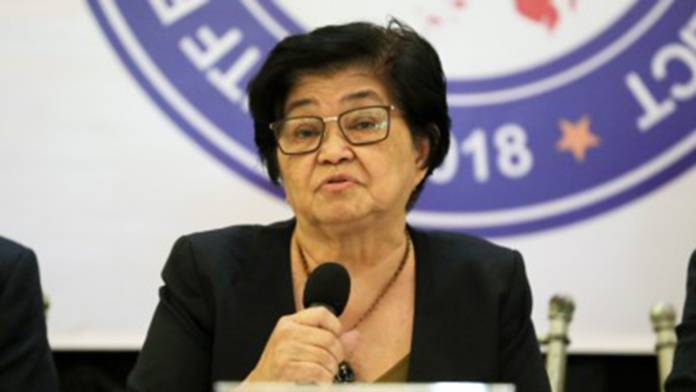A business leader expressed gratitude to National Security Adviser Clarita Carlos for ending the practice of red-tagging in government.
Carlos also serves as vice chair of the National Task Force to End Local Communist Armed Conflict (NTF-ELCAC).
Ed Chua, chairman of the Business for Sustainable Development and the Makati Business Club, thanked Carlos during a dialogue with other business leaders at the Asian Institute of Management (AIM) in Makati City on Monday.
The dialogue was the first time a national security adviser held a meeting with members of the business community.
Chua described red-tagging as “highly divisive” and “does not really address the main causes of why some of our countrymen have gone underground.”
Carlos earlier said there will be no more red-tagging in the administration of President Ferdinand R. Marcos Jr., saying that “it makes no sense labeling people.”
Chua also expressed appreciation to Carlos for meeting him and other members of the business community.
Toti Chikiamco, president of the Foundation for Economic Freedom, also praised Carlos for involving the business community in national security concerns.
Carlos, for her part, highlighted the role of the business community in national security.
“National security is human security. National security is the security of the individual. You go to work, go home, and have a fair assurance that you’ll come back walking, and not dead. Human security, food security, energy security—where you have light at home, or gasoline for your car; health security,” she said.
She explained the relationship between the government and the private sector is “symbiotic.”
“The government regulates wealth creation and distribution while the private sector generates value and leads the distribution of resources. In this light, the government depends on businesses to ensure that more people benefit from the scarce resources,” she added.
She likewise encouraged business leaders to be more mindful of data privacy and security,
“(It is) a direct national security threat in the event that the company’s proprietary information falls into the wrong hands,” she said. (PNA)


